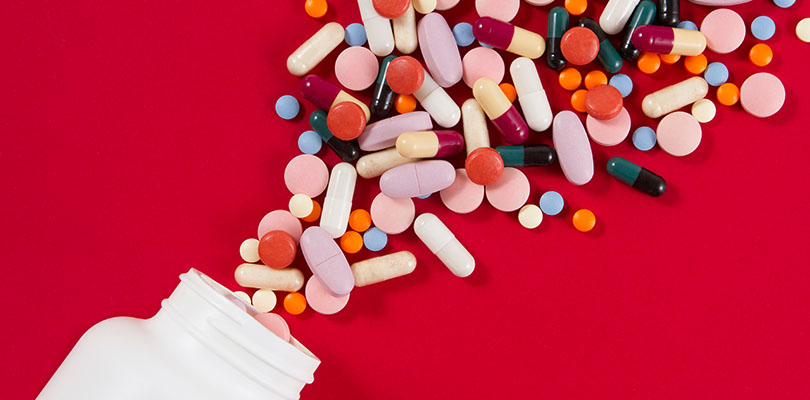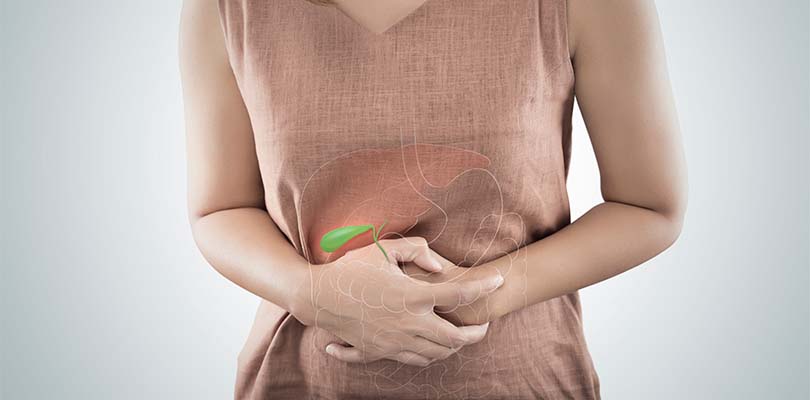What Are Vitamins?
Vitamins are carbon-comprised organic chemical compounds the body needs to consume for growth, repair, metabolism and overall health. Exceptions are vitamins D, K, choline, and biotin, which technically the body can self-produce.
Vitamins, along with minerals, help make the enzymes and hormones necessary for all the wondrous chemical reactions we need to live, including manufacturing blood cells and converting food into usable energy. Some are needed in smaller amounts than others, but all are equally important.
Vitamins are found in plant and animal food sources but are not foods in and of themselves. If your diet alone is not providing you with an adequate measure of all these vital nutrients, supplements can be beneficial.
You will notice that some vitamins have one or two other names associated with it, and some of the B's are referred to by not-necessarily-sequential numbers. This is not scientists' attempt to confuse us, but simply a product of an evolving understanding of these essential elements. Some B vitamins were discovered and assigned a number only to be later found to be two separate elements, and so the numbering/naming system got a little out of order.
Some vitamins became more commonly referred to by their full names, others by their letter and others by their letter and number combo.
Vitamins can be divided into two groups: fat soluble vitamins and water soluble vitamins.
What Are Fat-Soluble Vitamins?
Fat-soluble vitamins dissolve in fat, not water. They are stored in the body, mainly in the liver and fatty tissues, and so you don't necessarily have to get a fresh supply of these vitamins on a daily basis.
You must watch that you don't take in too much of these vitamins, as a storage-overload in the body can be toxic.
Vitamin A
Vitamin A is also known as carotene (from plant-sources) and retinol (from animal sources). As a general rule, fruits and vegetables rich in vitamin A tend to be deep green or yellow-orange colored - the darker and richer the color, the higher the carotene content. Carotene and beta-carotene are converted to vitamin A when consumed by the human body. Animal sources are already in an active state of vitamin A.
This antioxidant (especially in the form of alpha-carotene and beta-carotene) is important for vision care and helps prevent night blindness. It is also necessary for the growth, repair, and maintenance of bones, teeth, skin, hair and mucous membranes – vitamin A keeps them moist, which helps fend off infections. Beta-carotene may also protect you against cancer and heart disease.
Vitamin D
Vitamin D is also known as cholecalciferol, calciferol or the "sunshine vitamin". The body produces Vitamin D when the sun's ultraviolet rays shine on it – only a few minutes a day is enough to meet the average person's requirements. Some animal-based dietary sources are also available.
Vitamin D helps the body absorb calcium and phosphorous from the small intestine. It is essential for the growth and maintenance of bones and teeth and can boost your immune system. People who get sufficient vitamin D are less likely to get colon cancer and research suggests it may help treat irritable bowel diseases.
Vitamin E
Vitamin E is a group of seven compounds known as tocopherols (alpha, beta, delta, epsilon, eta, gamma, and zeta). Alpha-tocopherol is the most absorbable. It is quickly destroyed by light, oxygen, and heat, so store any supplements in a cool, dry, dark place.
This antioxidant helps preserve vitamins A, B, C and others by fending off damaging free radicals. It increases endurance and stamina, improves circulation and blood pressure, boosts your immune system and protects red blood cell membranes. Also, it acts as an anticoagulant, and studies suggest it may help prevent heart disease or thwart it from getting worse. It may also protect against cancer.
Vitamin K
Vitamin K is not just one vitamin but a group of compounds – you might hear it referred to as phytonadione (a plant form), menaquinone (made in the intestines) or menadiol (a synthetic form). Consider it the anti-hemorrhage vitamin. It is not often included in multivitamin supplements.
Vitamin K regulates normal blood clotting and protein formation. It also promotes healthy bone development. Newborns are usually given a shot of vitamin K to prevent hemorrhaging.
What Are Water-Soluble Vitamins?
Like the name says, water-soluble vitamins dissolve in water. Toxic doses are unlikely as any excess is simply excreted in urine.
These vitamins cannot be stored in the body for a long time, so you must replenish them with a fresh intake every day. This water-soluble group is comprised of vitamin C and the B-complex vitamins, all very important vitamins to consume daily. The exceptions are the unofficial B vitamins choline and biotin which, although they are found in natural food sources, the body can actually manufacture itself.
Whether your goal is to lose weight or train for a specific event, there are many reasons why you should consider getting a fitness tracker.
B Vitamins
The B vitamins are comprised of eight essential vitamins referred to as B-complex vitamins. The B group of vitamins is water-soluble, meaning if the body gets too much they are excreted via the urine.
B vitamins are mainly responsible for breaking down fats, proteins, and carbohydrates; the body's primary source of energy. However getting enough vitamin Bs in your diet will also result in healthy skin, hair, eyes, liver and intestinal health.
- B1 or Thiamine – metabolizes carbohydrates into the simple sugar glucose. B1 also helps the nervous system function properly.
- B2 or Riboflavin – also breaks downs carbohydrates, as well as fats and proteins. Vitamin B2 also has a significant impact on the skin, the mucous membranes, as well as the eye's cornea and nerve sheaths.
- B3 or Niacin – is required to metabolize food. B3 also helps develop healthy skin and supports gastrointestinal tract and nerve maintenance. A deficiency of niacin causes the disease, pellagra. Symptoms of pellagra include diarrhea, dermatitis, and dementia.
- B5 or Pantothenic Acid – helps metabolize nutrients, manufacture antibodies and produce vitamin D. It also stimulates the healing of wounds. Supplements are sometimes used to treat symptoms of allergy and a wide range of skin conditions.
- B6 or Pyridoxine – supports the decomposition of carbohydrates, protein, and fat.
- B9 or Folic acid – in partnership with vitamin B12 and vitamin C, breaks down proteins and hemoglobin, an important part of DNA repair.
- B12 or Cyanocobalamin – works with B9 and vitamin C to repair human DNA. B12 is also partially responsible for producing the body's blood cells and maintaining the nervous system. Vegetarians often suffer vitamin B12 deficiency if they don't incorporate the proper supplements in their diets.
- Biotin or vitamin H – is produced by our intestines and it acts as a coenzyme in carboxylation reactions to aid with body function. Those who eat too many egg whites can be deprived of biotin and develop a skin condition called scaly dermatitis.
Vitamin C
Vitamin C is a strong antioxidant that promotes the growth and maintenance of bones, teeth, skin and red blood cells. It aids in the repair of tissues and the formation of collagen, plus it helps the body resist stress and infection. It increases the absorption of iron and calcium.
Vitamin C is believed to prevent cardiovascular disease, lower cholesterol levels, lower blood pressure, fight allergies and asthma, aid symptoms of diabetes, prevent gallstones, prevent cancer, improve male fertility, prevent osteoporosis, and slow down the progress of Parkinson's disease.
Choline
Choline is an unofficial B vitamin that the body can manufacture from lecithin, a structural component of cell walls. It is a precursor for acetylcholine, which functions as a neurotransmitter that is essential for brain function.
Choline's main function is to maintain cell membrane integrity. You need it to metabolize fat and keep the liver functioning smoothly. There is some evidence to suggest it may prevent or reduce symptoms of some nervous system diseases including Alzheimer's and Huntington's.
Folic Acid
Folic acid (or folate) helps form red blood cells and genetic material, plus affects the growth and repair of all tissues. It reduces homocysteine in the blood, which may forestall heart disease.
It also regulates fetal development and can help prevent birth defects like spina bifida if taken in the early stages of pregnancy. Recent studies have shown that folic acid may also prevent certain cancers and fend off depression.






